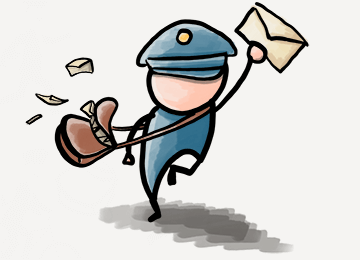Do you know why attention is the most precious of our resources? Because it shapes the way we experience reality. Our frustrations, hopes, fears, dreams, and desires all stem from noticing that which we can’t ignore.
There’s this exercise I call the Three Good Things Journal. It’s simple. Each evening, write down three good things that happened to you that day. Whatever comes to the front of your mind.
Is it the same as a gratitude journal? No. Gratitude implies being thankful and frames your thinking to appreciate things you must not take for granted. Also a helpful technique, but with different psychological effects. The benefit of the Three Good Things Journal is more straightforward. It counters our negativity bias. By journaling regularly, you can train yourself to pay more attention to positive experiences because you expect having to write them down in the evening. Voila! Brain rewired.
Naturally, it takes some effort to journal every evening. There are probably apps for that. Or you can set a reminder, but that doesn’t change the fact that the habit has to come from you.
If five minutes each evening can change how you see the world, consider how much of that rewiring happens throughout the day. Without you ever agreeing to it. Camera filters—young skin, white teeth—change the way we present ourselves, as well as our perception of how normal looks. Sensationalist headlines make money off clicks, convincing us that the end is nigh, the world has gone to shit, and that we live in some dystopian alternate reality where all hope is lost. Mass-produced entertainment poses no hard questions and explores no uncomfortable choices. A personalized feed brims with the drug of your choice, micro-dosing dopamine, for as long as you keep scrolling.
There’s no conspiracy. No lizard people. Just business. An economy based on the assumption of ever-accelerating growth, looking for—and finding—new ways to generate revenue. Nothing inherently evil about that. Many companies today have a genuine sense of a humanitarian mission, regardless of hostile market conditions.
So are we free to choose what we pay attention to? The free will argument says that yes, we are. Nobody’s forcing you to be distracted.
But tell that to an addict. One drink, and then you can stop if you want to. Have one puff of a cigarette and then put it out. Have only one french fry, half of a potato chip. Take out your phone to check the time, ignore all the notifications and red dots, and put it back in your pocket. Bonus points if you can actually remember the time.
Can people do these things? Yes. As in, no law of physics prevents us from putting our phone down after two seconds. It just doesn’t happen in practice.
I don’t advertise on social media. I think they take away more than they offer. If you enjoyed the read, send it to someone you know.


A read I’m glad to have found this morning. Now that I’ve given you five minutes of my attention (broken up, of course, by the notification of a message from someone else), I wonder if my brain will be rewired for the rest of the day. Congratulations and thank you, if you’ve achieved it.